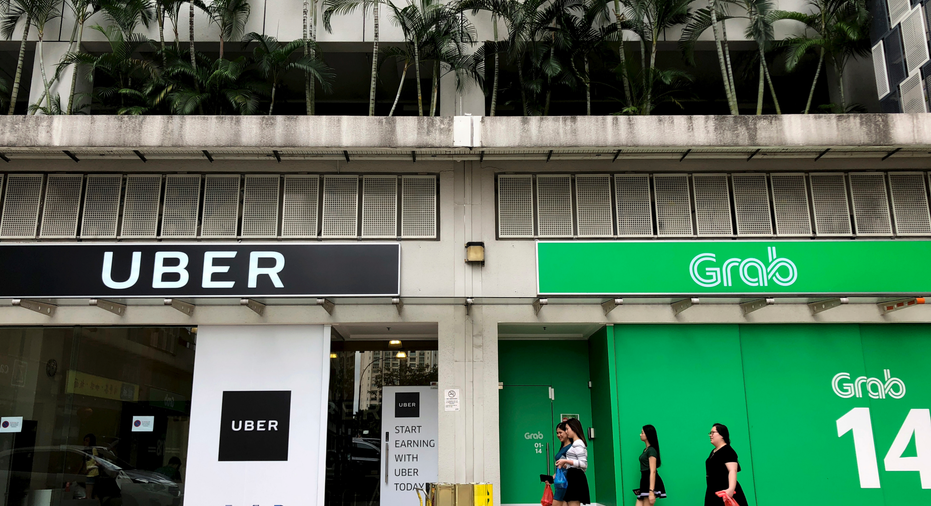Uber selling Southeast Asian business to regional rival Grab

BANGKOK – Ride-hailing giant Uber is selling its business in Southeast Asia to regional rival Grab while gaining a robust stake in the fast-growing ridesharing, food delivery and financial services business.
Grab said Monday that Uber will take a 27.5 percent stake and a seat on its board as part of the deal. Financial details were not disclosed.
Since becoming Uber's CEO in September, Dara Khosrowshahi has been maneuvering to make the company profitable before a planned initial public offering expected next year.
The company's full-year net loss widened to $4.5 billion in 2017 as it endured multiple scandals and the departure of its co-founder and former CEO Travis Kalanick.
The deal enables Uber to keep a foothold in the increasingly affluent market of 640 million people while cutting its losses.
"It will help us double down on our plans for growth as we invest heavily in our products and technology to create the best customer experience on the planet," Khosrowshahi said in a statement.
Grab provides services in Singapore, Indonesia, the Philippines, Malaysia, Thailand, Vietnam, Myanmar and Cambodia. It says it offers access to five million drivers and agents and handles over a billion transactions a year.
The deal was dismaying to many in Asia who have often compared the rival apps in search of the best deal.
The Uber app will be discontinued in just two weeks, and in the meantime its drivers have to sign up to drive with Grab. Riders, likewise, will need to download the Grab app and set up accounts, although their Uber accounts will still work outside Southeast Asia.
The companies said that Uber Eats, the food delivery business, will run in Southeast Asia through May and then shift to the GrabFood platform.
Grab has been seeking to dominate the regional market for car and motorbike hailing and has expanded into other areas, recently announcing plans to partner with a Japanese credit card company to provide credit to millions of people without bank accounts.
In Indonesia, the region's biggest economy and most populous country with more than 250 million people, it's in a fierce battle for customers with local app Go-Jek, which has backing from Google and Tencent.
Grab's CEO and co-founder Anthony Tan said the acquisition of Uber's regional business marks the beginning of a new era in using mobile businesses to provide transport, food delivery, payments and other financial services across the region.
Uber has withdrawn from several big overseas markets. It sold off its China business to a competitor and partner, Didi Chuxing, taking a stake in Didi. In Russia, it agreed to merge its ride-hailing business in the country with Yandex, a local search-engine leader that also runs a popular taxi-booking app.



















